Triple Olympic gold medal winner and five-time World record holder Stephanie Rice reveals how she plans to get an Olympic medal for India in swimming in 2028.
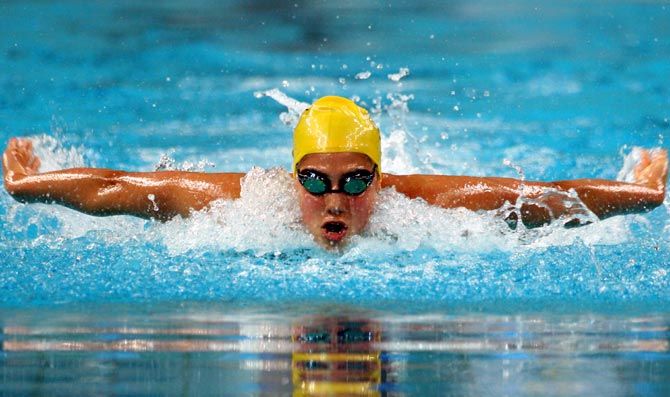
Australia's swimming legend Stephanie Rice is on a mission in India.
The winner of three gold medals at the 2008 Olympic Games and a five-time World record holder wants to produce Olympic aquatic champions from India, which hasn't enjoyed a good run in the pool at the Summer Games.
The 31 year old, who was recently inducted as an athlete member of Sport Australia's Hall of Fame, is launching the Stephanie Rice Swimming Academy to guide Indian swimmers towards a podium finish at the 2028 Olympics.
Rice has interacted with leading swimmers in India and plans to open the academy in association with her coach, Michael Bohl.
Over the next week in Mumbai, Stephanie and her team will meet with sponsors and partners to finalise plans for the opening of the Stephanie Rice Swimming Academy in India.
"There are very talented swimmers in India. I believe all that is lacking and standing between them and a medal at the Olympics is world class training," Rice tells Rediff.com's Harish Kotian.
Along with your coach Michael Bohl you have this ambitious plan of training and guiding Indian swimmers towards an Olympic medal in 2028.
What made you take this decision to coach Indian swimmers who have not done well in the pool at the Olympics?
We are hoping to have someone on the podium in 4 to 8 years time in the Olympics. That would be our ultimate dream.
India is one place which I just love. I have always had this internal fascination with India. Throughout my career I had so much support from the Indian media. When social media came about a lot of support from Indian fans online.
I was always confused why I have so many followers from India. I had not competed in India nor am I Indian, so I never really understood that. India is not known for swimming, so it was a really weird concept.
So I just wanted to explore why that was, so I came over here. Then I was asked to do the Star Sports coverage and the more I have been here, the more I have become passionate about staying here long term and creating something in India .
Having seen a lot of coaching programmes and the current swimmers, being asked to talk about it, do swimming clinics, I have been able to navigate what's missing, what I could improve on, what we could do to really help Indian swimming.
Whilst it is nice to do a swimming clinic for one day, the impact we have is so small. We need to create something long-term.
At least a 10 year goal because it takes time to groom an Olympian. It takes time not just to groom an Olympian, but create the whole belief in Indian swimming that we can do what we are trying to do.
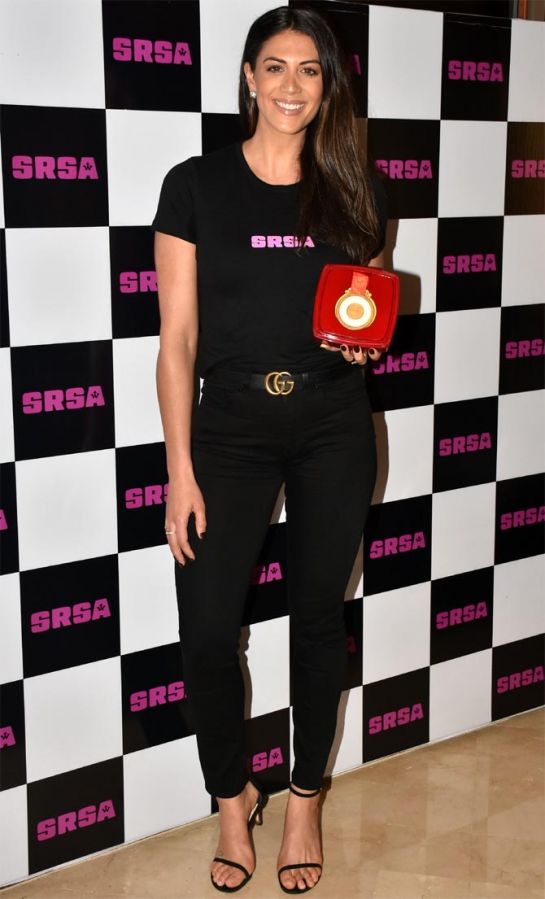
At the Rio Olympics, two Indian swimmers -- Shivani Kataria and Sajan Prakash -- who were picked as wild cards failed to make the semis.
What do Indian swimmers lack? Is it infrastructure, lack of support, proper coaching or a lot of factors combined?
What they lack is high performance swimming coaching. You look at cricket or badminton, the facilities side of it, the coaching around, nutrition, strength and conditioning, I feel all of that is there.
I feel high level swimming coaching is what is lacking in India.
In Australia, you have the opportunity to train under the likes of Michael Bohl, who is my coach, or Michael Phelps's coach. You have access to see what the best coaches in the world do and how can I create that in my coaching programme.
India is not known for swimming so high level coaches from other countries wouldn't necessarily come to India, they would want to go the US or somewhere like that because that is very much a swimming country.
I feel I can start that movement through the Stephanie Rice Swimming Academy. Bringing my coaches here, training local coaches to understand high performance coaching, how to train at a high level.
Are four years enough to get Indian swimmers to the level of the Olympics?
The best performance by an Indian swimmer so far is 24th in the world at the Olympic level.
When it comes to swimming, Olympics is the competition. You have the Asian Games, Commonwealth Games, but those are not the ones, swimming at Olympics is the pinnacle.
In four years we will definitely be able to get people in the finals (at the Olympics), so that would be top eight in the world.
And then within eight years I definitely hope to have someone on the podium at the Olympics, which is top three in the world.
You have spoken to sponsors, swimmers and people concerned with swimming. Do you get a feeling that swimming is an ignored sport in India when it comes to the administrators and the government?
Definitely. That is why it is important for me to do what I am doing with the academy. It does take time to create that movement.
Top Indian swimmers are having to train in other countries. You can only do that if you the financial support of your family and the opportunity to do that.
When I look at other sports you see what P V Sindhu did at the last Olympics. Every young girl now wants to be like Sindhu.
You see the success she has had financially, the sponsorship deals. She can be a top athlete because she now has the support.
So it does take one person to come in, train someone up and have them achieve success. It creates this huge ripple effect. Then other athletes want to be like that athlete.
Swimming is a sport available (in India) for people with financial backing -- to be able to train and also have access to a pool. But I hope in 4 to 8 years we are able to close the gap and also be able to sponsor athletes from rural areas that don't have the opportunities to come to a programme and talent search them out.
I really want to create something so much bigger than just ultimately to have someone on the podium. I want to really, really, build the sport of swimming in India.
We don't have many Olympic standard swimming pools in India. Is that a major hindrance to the development of the sport in this country?
You don't really need an Olympic standard pool for training.
The Australia Institute of Sports has one of the best pools in the world. It is very high tech, but I didn't train there. A lot of people assume I trained there because that's the best pool in Australia.
We just trained in a regular 50m outdoor pool at a school. Nothing hi-tech, no touch pads, no big tech screens. You don't need those for day-to-day coaching, but you need to access that for competition.
I don't see any issues with infrastructure here. There are a number of fantastic 50m pools and they would be perfect for day-to-day coaching. Then we can easily go to a clinic or a weekend camp at a pool that has all the high-tech facilities.
Will your swimming academy be based in one city? Or will you have a few centres across the country?
We will just base the academy in one city, in one pool, because we want to focus all our resources on that one area in coaching. But over the course of 4 to 8 years we would hope to open learn to swim programmes in a lot more states, and then funnel them through the elite programme.
Swimming is an unique sport since swimmers have a very short career at the international level. They start and finish young.
Five-time Olympic gold medalist Missy Franklin retired from competitive swimming at 23. You retired at 24.
I actually disagree. I don't think swimmers have a short career, you just start your career younger.
When you look at most sports, 10 years at the top level is pretty much the capacity of what you can get. The thing is you just don't notice them until the last six years of your career.
I made my first Australian senior team at 15 and retired at 24, so nine years of top level of sport.
What age group swimmers are you targetting in India?
For the elite level part of the programme, we probably want to have around 30 athletes. We want those athletes to be in the age group of anywhere around 12-13 up to 25-26.
We would want the swimmers to already have an understanding of swimming and then focus on technique and development from the age of around 8.
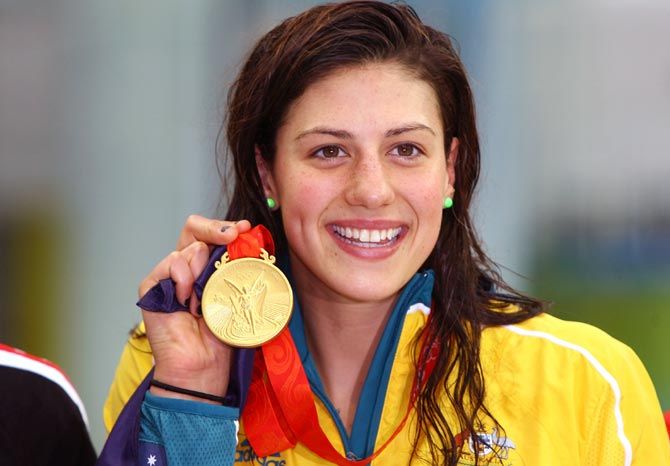
Would you be looking to take young Indian swimmers to Australia to experience the world class coaching and infrastructure Down Under?
I hope to do stuff like that, which is why we are looking for a company to support us.
The way I see it working is you do your training in the normal location, then you definitely need to have training camps and competition like exposure.
So we would definitely like to take the Indian squad to Australia, do some training there with the likes of say Australia's current Olympians and then race them.
So you get the exposure -- what these people do, how they race and this is the level I gotta get to -- then you go back to your training programme and you are so much motivated because you have seen that and know what you gonna focus on.
That is why we need a sponsor to come on board to support the venture because it is a a big part of creating Olympic swinners.








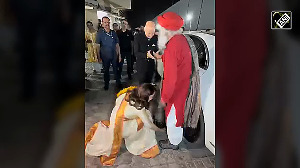
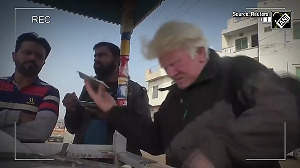
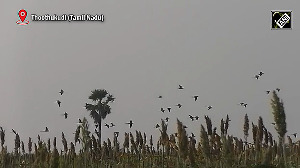

 © 2025
© 2025